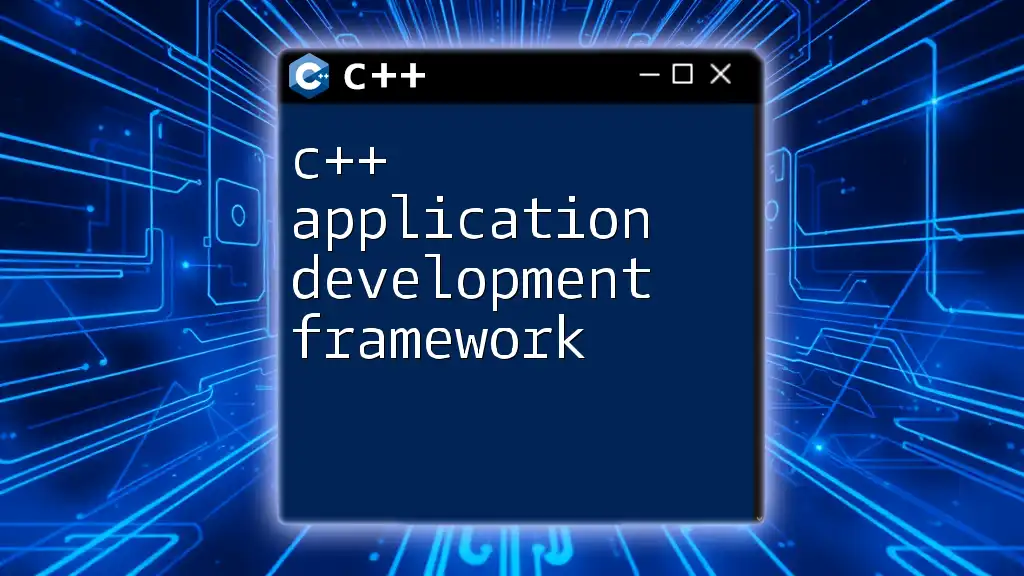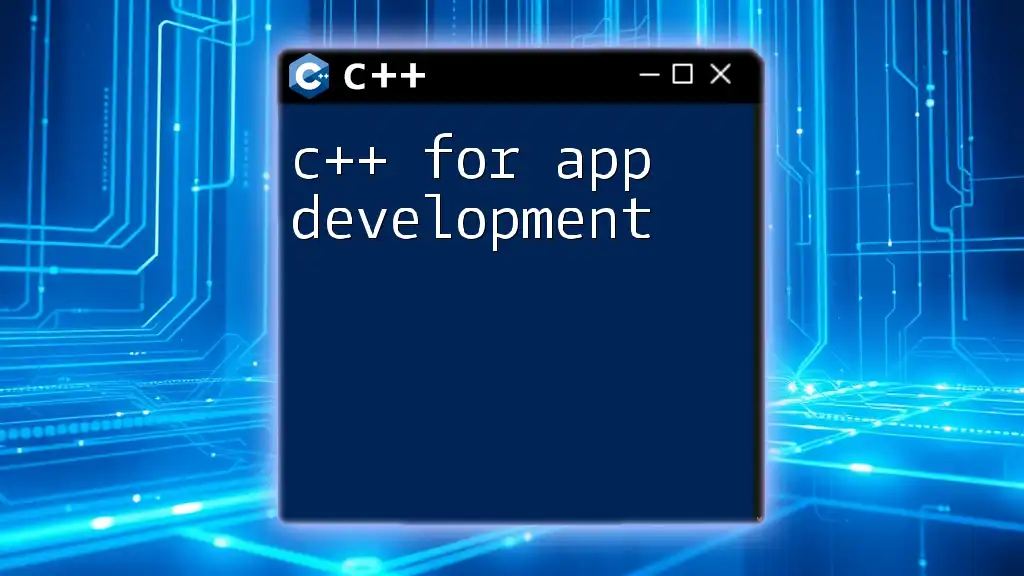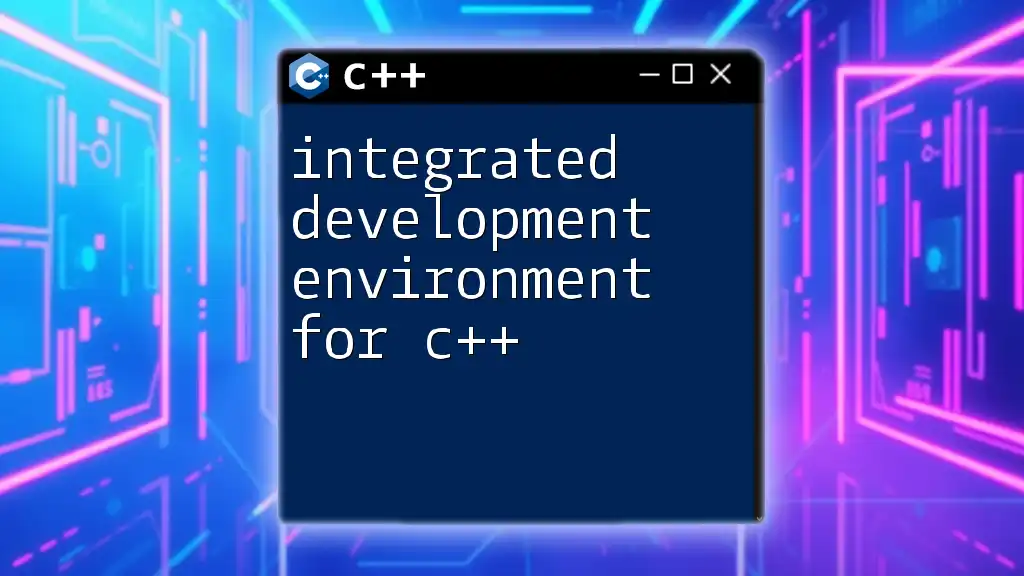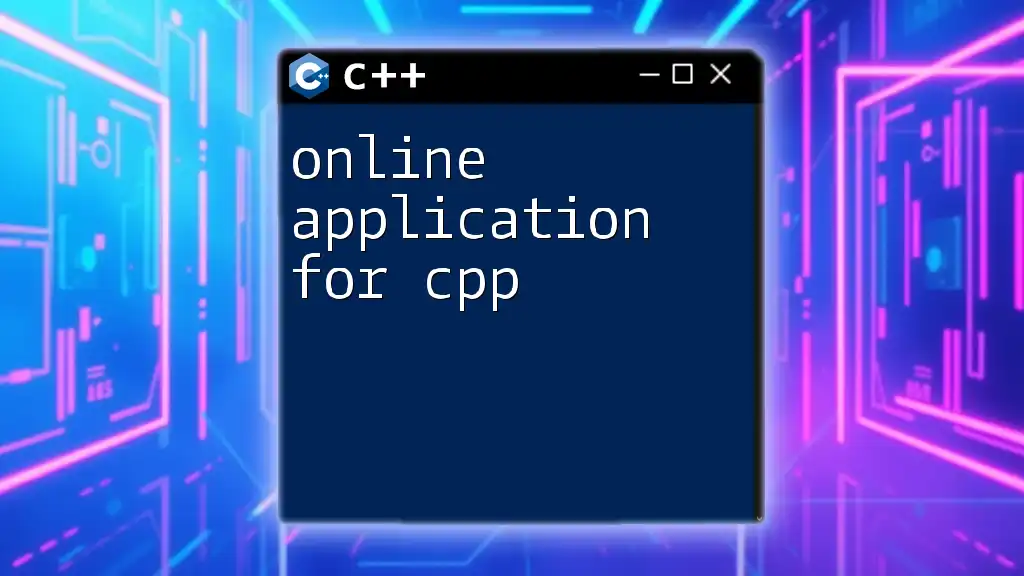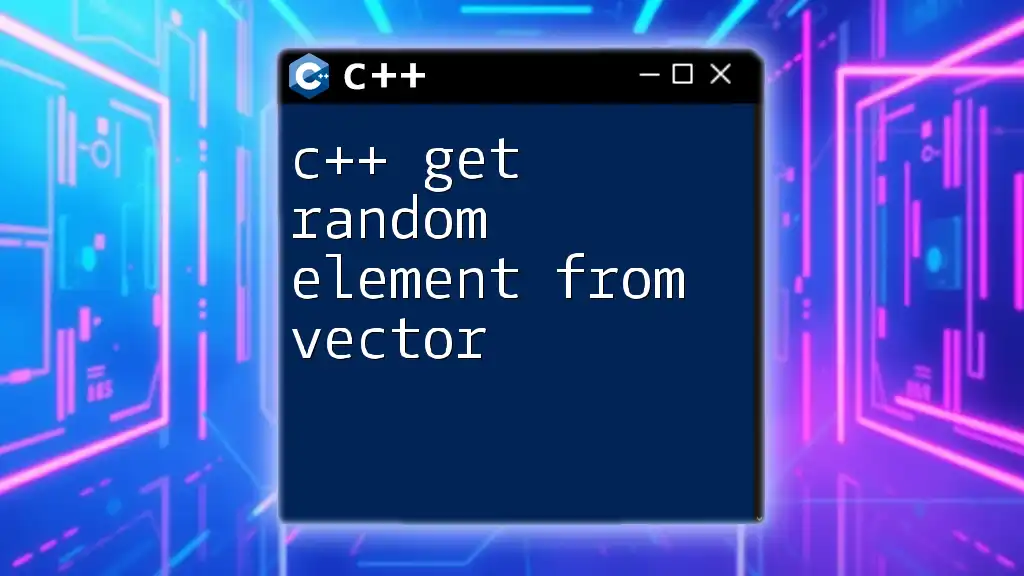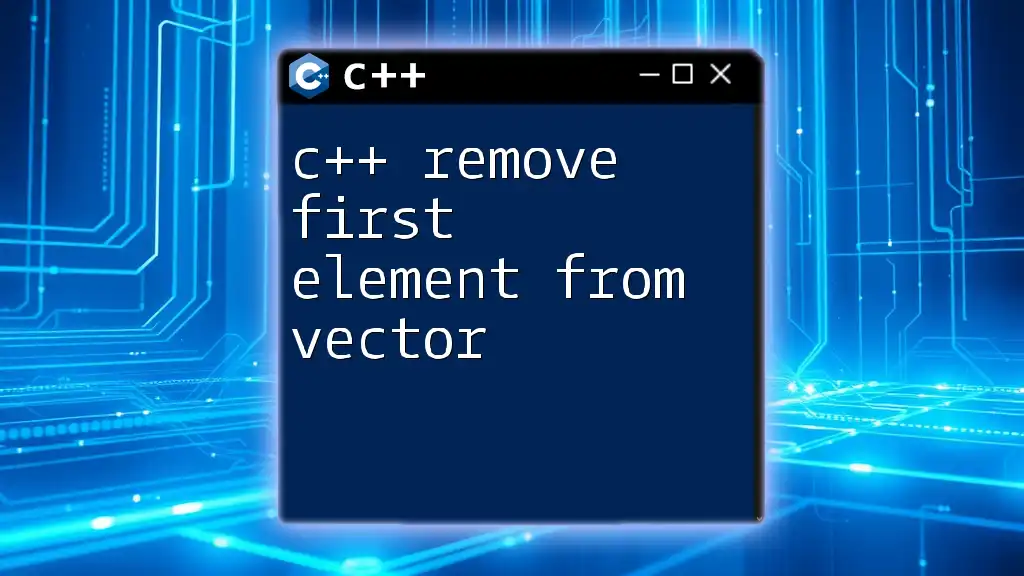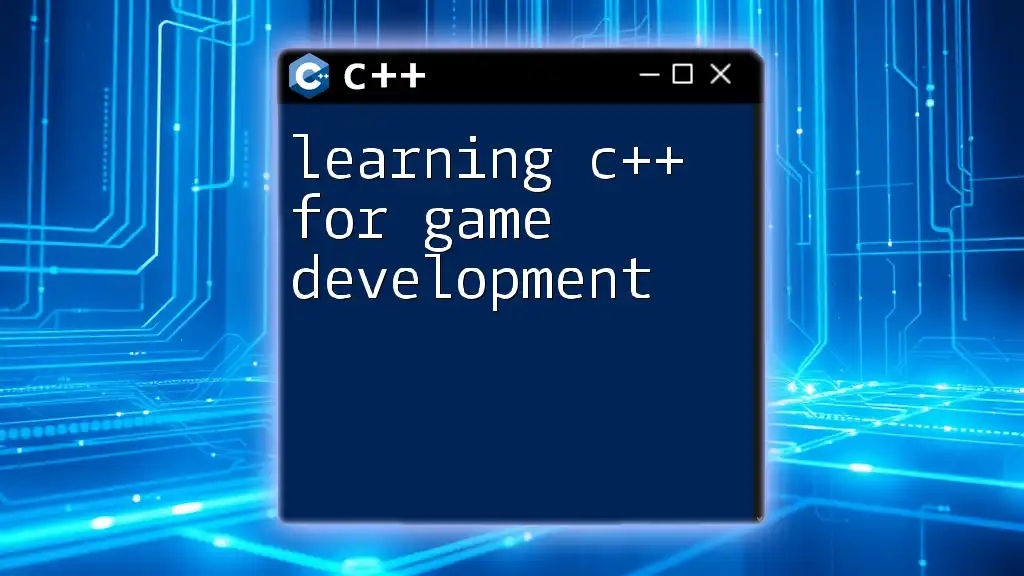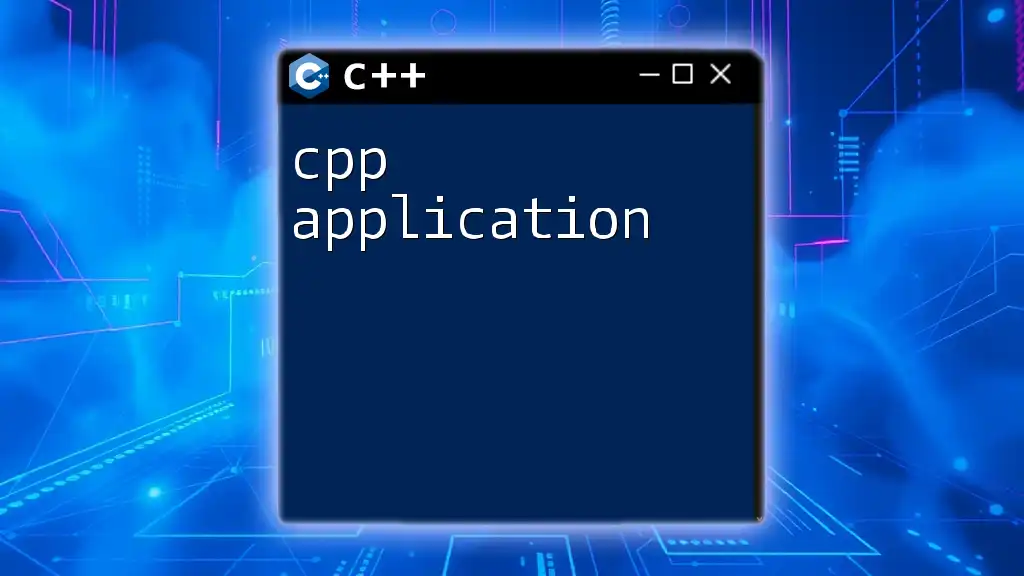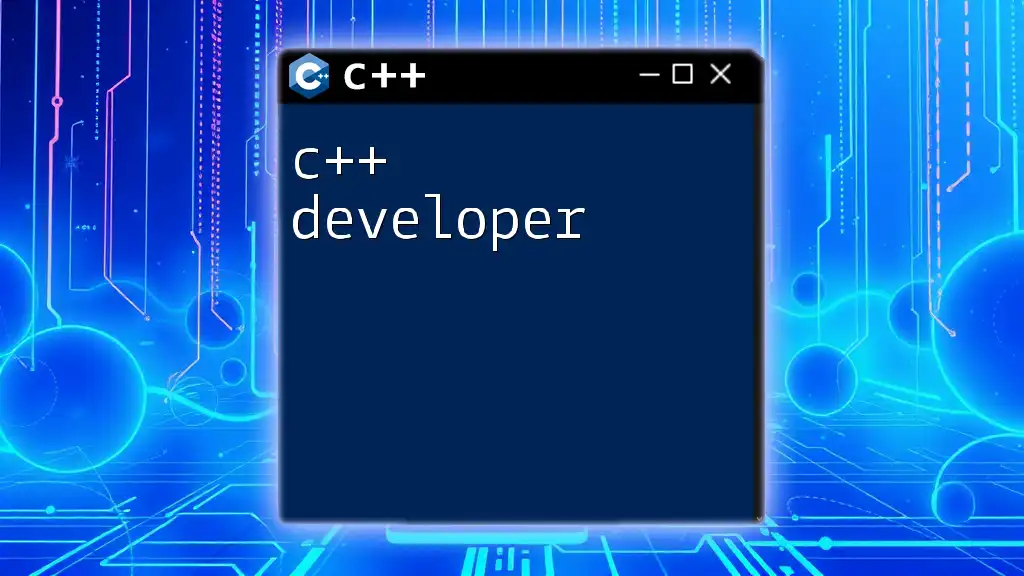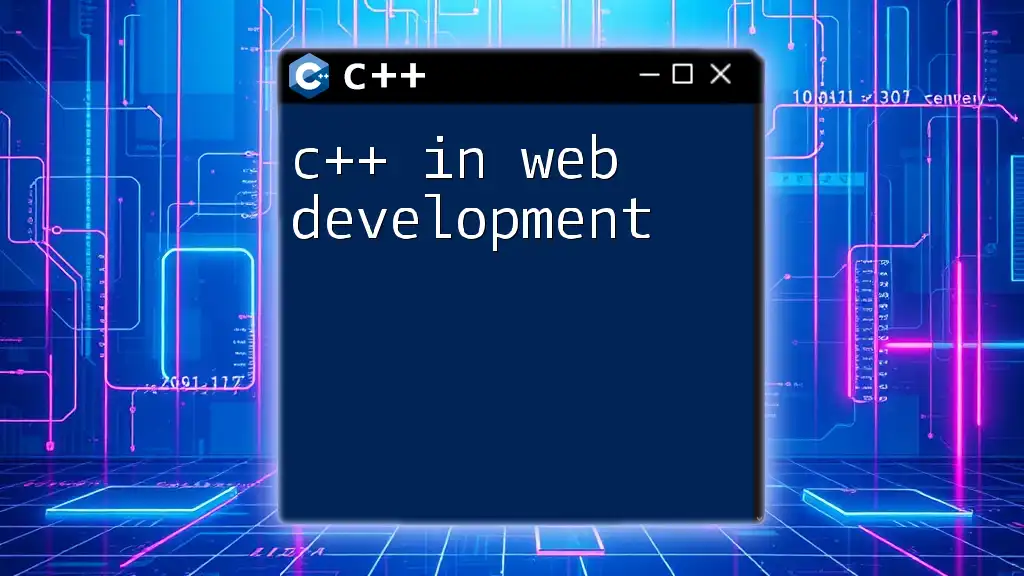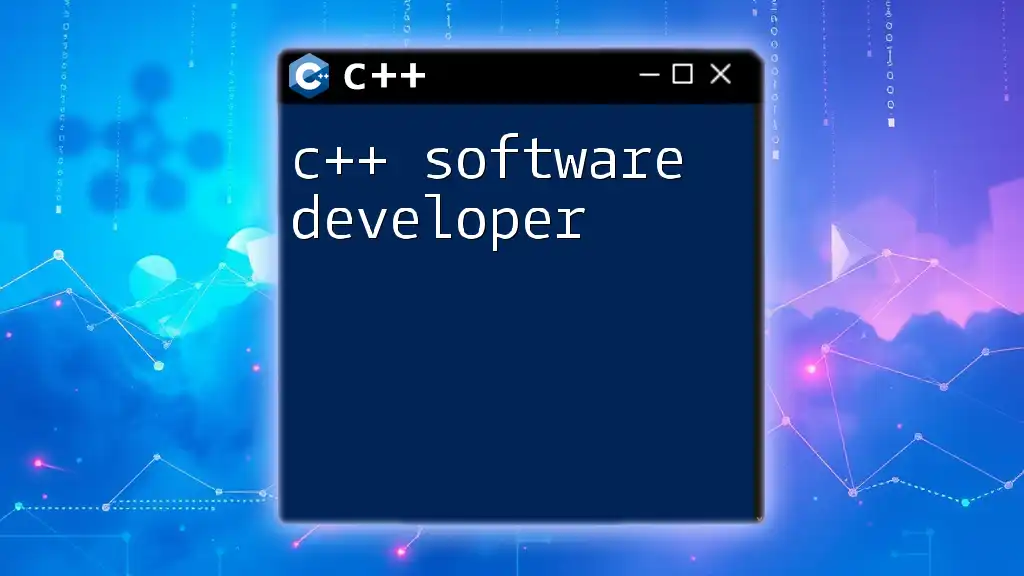A C++ application development framework provides a structured environment that simplifies the process of developing applications by offering reusable code, libraries, and tools.
Here’s a simple example of a command using a common C++ framework, Qt, to create a basic application window:
#include <QApplication>
#include <QWidget>
int main(int argc, char *argv[]) {
QApplication app(argc, argv);
QWidget window;
window.resize(320, 240);
window.setWindowTitle("Hello, C++ Framework!");
window.show();
return app.exec();
}
What is an Application Development Framework?
An application development framework is essentially a collection of tools, libraries, and best practices that developers leverage to build applications efficiently and effectively. These frameworks provide a standardized way to construct applications, enabling a faster development cycle while ensuring maintainability and scalability.
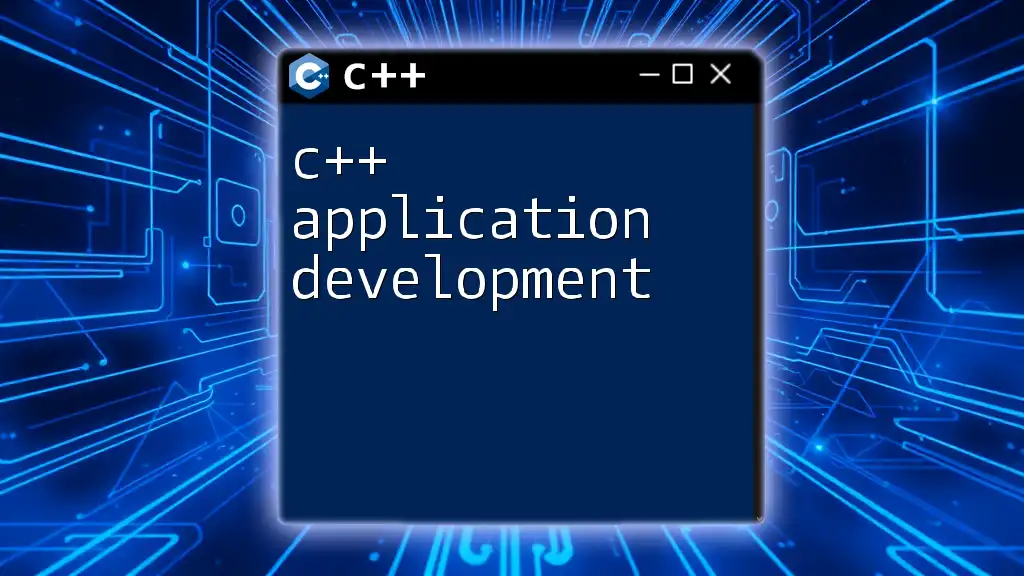
Why Choose C++ for Development Frameworks?
C++ is a powerful language known for its performance and efficiency. When employing a C++ application development framework, developers can harness the language's strengths:
- Performance Benefits: C++ is highly optimized for performance, making it ideal for applications that require speed and responsiveness.
- Robustness and Scalability: C++ frameworks can handle large applications with complex architectures thanks to its object-oriented features.
- Wide Range of Libraries and Tools: C++ boasts a rich ecosystem of libraries that extend its functionality, catering to various types of applications including GUI, game development, and even web servers.
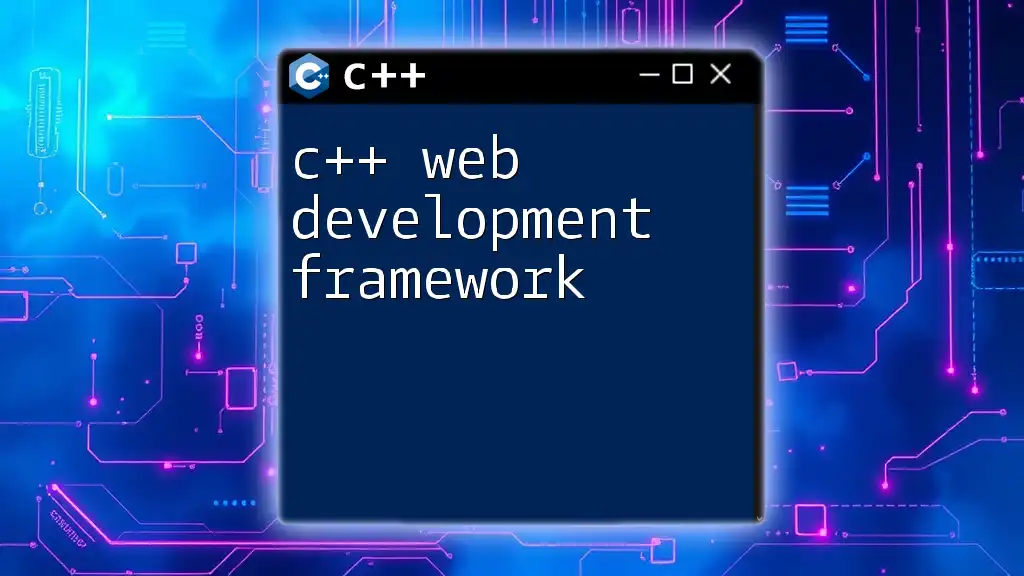
Types of C++ Application Development Frameworks
Cross-Platform Frameworks
Cross-platform frameworks allow developers to write code that can run on multiple operating systems. Some renowned examples include:
- Qt: Ideal for GUI applications with rich graphical capabilities.
- wxWidgets: Offers a native look and feel on various platforms.
Example Code Snippet using Qt:
#include <QApplication>
#include <QPushButton>
int main(int argc, char *argv[]) {
QApplication app(argc, argv);
QPushButton button("Hello, World!");
button.resize(200, 100);
button.show();
return app.exec();
}
Game Development Frameworks
C++ is closely linked to game development due to its performance prowess. Notable frameworks include:
- Unreal Engine: A powerful game engine known for its high-fidelity graphics.
- Cocos2d-x: Focused on mobile games, providing an easy-to-use interface for 2D game development.
Example Code Snippet demonstrating Cocos2d-x:
#include "HelloWorldScene.h"
#include "SimpleAudioEngine.h"
using namespace cocos2d;
Scene* HelloWorld::createScene() {
return HelloWorld::create();
}
bool HelloWorld::init() {
if (!Scene::init()) {
return false;
}
auto label = Label::createWithTTF("Hello, World!", "fonts/Marker Felt.ttf", 24);
label->setPosition(Vec2(Director::getInstance()->getVisibleSize() / 2));
this->addChild(label);
return true;
}
Web-Based Frameworks
While not as typical as other languages, C++ frameworks can be utilized for web development, enabling high-performance web applications. Some notable examples are:
- CPPCMS: Designed for web application development.
- Crow: A micro web framework similar to Python's Flask.
Example Code Snippet for a Simple CPPCMS Server:
#include <cppcms/http_response.h>
#include <cppcms/application.h>
#include <cppcms/service.h>
class HelloWorld : public cppcms::application {
public:
HelloWorld(cppcms::service &srv) : cppcms::application(srv) {}
void main(std::string /*url*/) {
response().out() << "<h1>Hello, C++ Web Application!</h1>";
}
};
int main(int argc, char **argv) {
cppcms::service srv(argc, argv);
srv.applications_pool().mount(cppcms::create_pool<HelloWorld>());
srv.run();
}
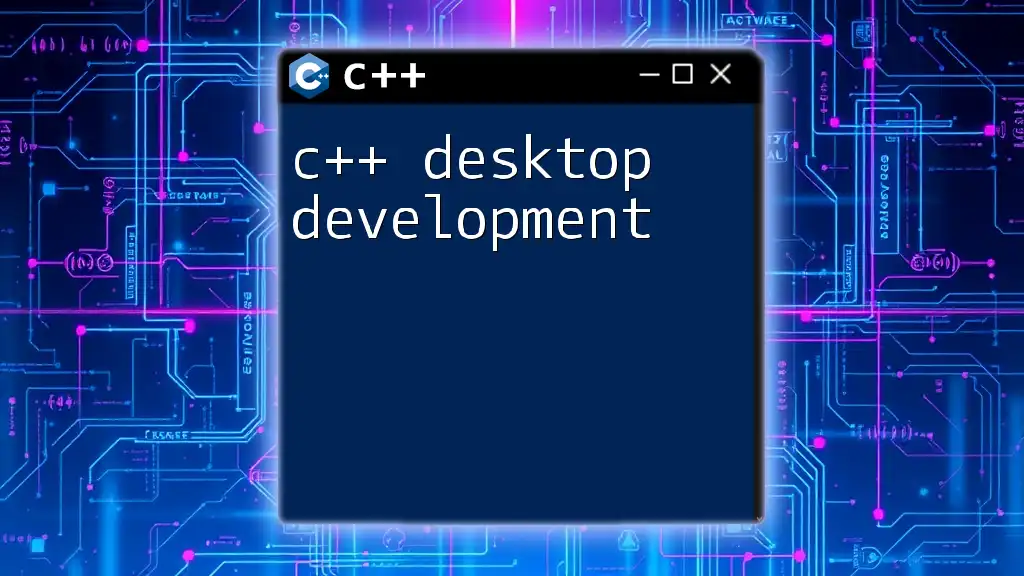
Key Components of C++ Application Development Frameworks
Modularity
Modularity is a core principle that encourages breaking down a software system into discrete components or modules. This results in better organization, ease of maintenance, and reusability of code.
A common practice in C++ is to use header files for declarations, separating interface from implementation. A simple example:
// MyModule.h
#ifndef MYMODULE_H
#define MYMODULE_H
class MyModule {
public:
void doSomething();
};
#endif
// MyModule.cpp
#include "MyModule.h"
#include <iostream>
void MyModule::doSomething() {
std::cout << "Doing something in MyModule." << std::endl;
}
Library Support
C++ offers a plethora of libraries that are crucial for framework capabilities. Integrating these libraries can drastically improve development speed and functionality.
Popular Libraries:
- Boost: Provides numerous functionalities, including smart pointers, threading, and regular expressions.
- OpenCV: A popular library for computer vision.
Example Code Using Boost:
#include <boost/shared_ptr.hpp>
#include <iostream>
class MyClass {
public:
void display() {
std::cout << "Hello from MyClass!" << std::endl;
}
};
int main() {
boost::shared_ptr<MyClass> ptr(new MyClass());
ptr->display();
return 0;
}
User Interface (UI) Elements
A robust C++ framework typically includes UI elements that facilitate the development of graphical applications. These elements may include buttons, labels, and forms.
Example Code for Creating a Button in Qt:
QPushButton *button = new QPushButton("Click Me", this);
connect(button, SIGNAL(clicked()), this, SLOT(onButtonClicked()));
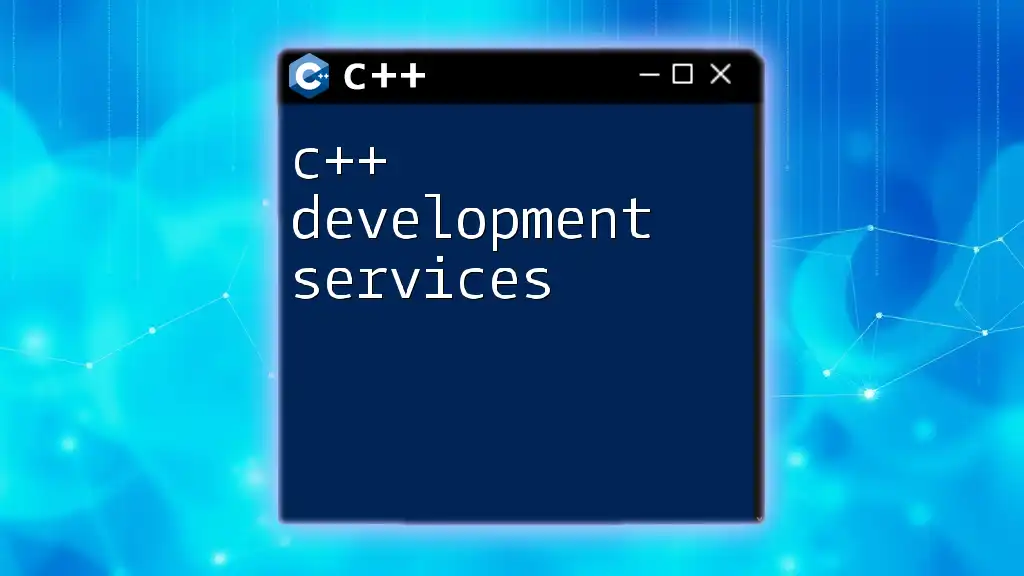
Building Your First C++ Application Using a Framework
Setting Up the Environment
Before diving into building an application, setting up the development environment is crucial. Recommended tools include:
- IDE: Visual Studio, Code::Blocks, or Qt Creator.
- Libraries: Install necessary libraries like Qt or Boost, depending on the framework chosen.
Creating a Simple Application
Start with a basic structure, such as a simple console application or a GUI app.
Example of Simple Console Application:
#include <iostream>
int main() {
std::cout << "Welcome to my first C++ application!" << std::endl;
return 0;
}
Compiling and Running the Application
To compile your C++ application, you can use command-line tools or integrated options in your IDE. Debugging can be done using built-in debuggers to find and fix any issues.
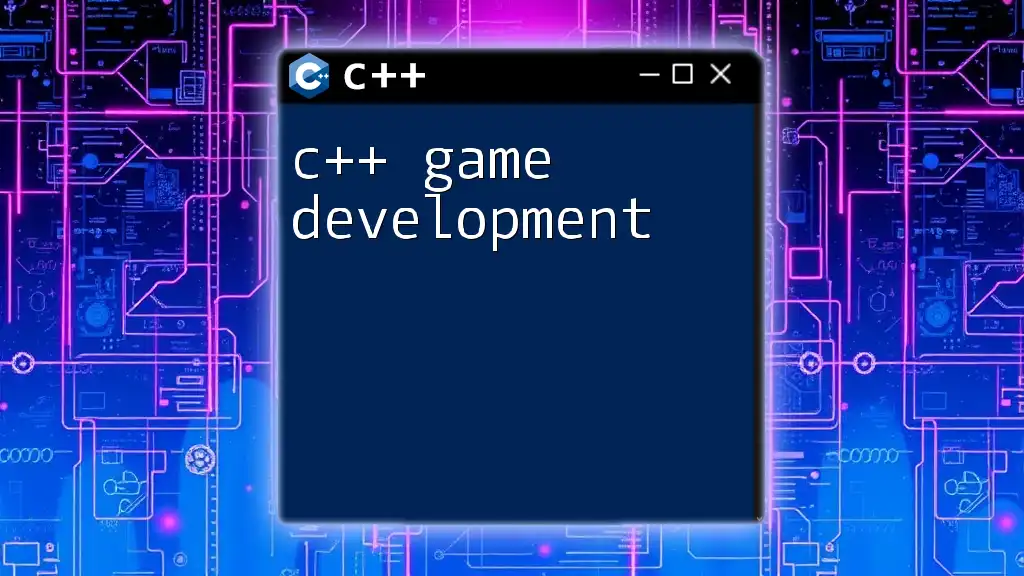
Advanced Topics in C++ Application Development Frameworks
Asynchronous Programming
In today's applications, asynchronous programming plays a vital role in enhancing performance. It allows tasks to be performed in parallel, improving responsiveness.
C++11 introduced the `std::async` feature that enables asynchronous operations.
Example Code for Asynchronous Task:
#include <iostream>
#include <future>
int asyncFunction() {
return 42;
}
int main() {
std::future<int> result = std::async(asyncFunction);
std::cout << "The answer is: " << result.get() << std::endl;
return 0;
}
Dependency Injection
Dependency Injection (DI) is a design pattern that enhances code maintainability and testing by decoupling class dependencies. Instead of instantiating dependencies inside a class, they are provided externally.
An example of using DI in C++ could look like this:
class IService {
public:
virtual void serve() = 0;
};
class ServiceA : public IService {
void serve() override {
std::cout << "Service A serving." << std::endl;
}
};
class Client {
IService *service;
public:
Client(IService *srv) : service(srv) {}
void doWork() {
service->serve();
}
};
int main() {
ServiceA serviceA;
Client client(&serviceA);
client.doWork();
return 0;
}
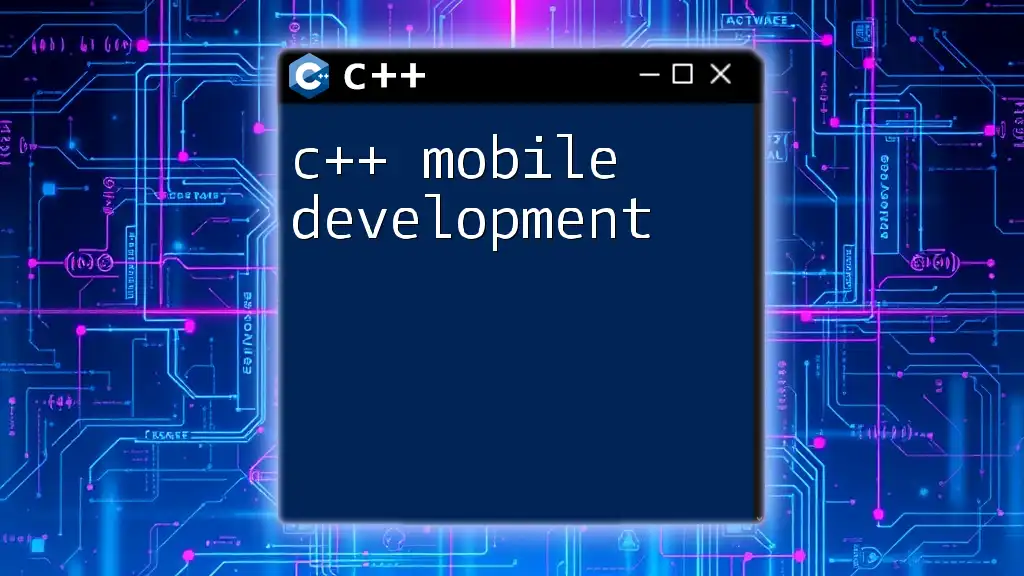
Best Practices for C++ Application Development
Code Quality and Maintenance
Writing clean and understandable code should be a priority. Incorporate coding standards and guidelines to maintain consistency. Consider using tools such as LLVM and ClangFormat for code quality checks.
Documentation
Comprehensive documentation is vital for maintaining a C++ application. Tools like Doxygen can automatically generate documentation from annotated code.
Version Control
Using a system like Git is crucial for managing application changes, tracking revisions, and collaborating with other developers. Establish a solid branching strategy to keep code organized.
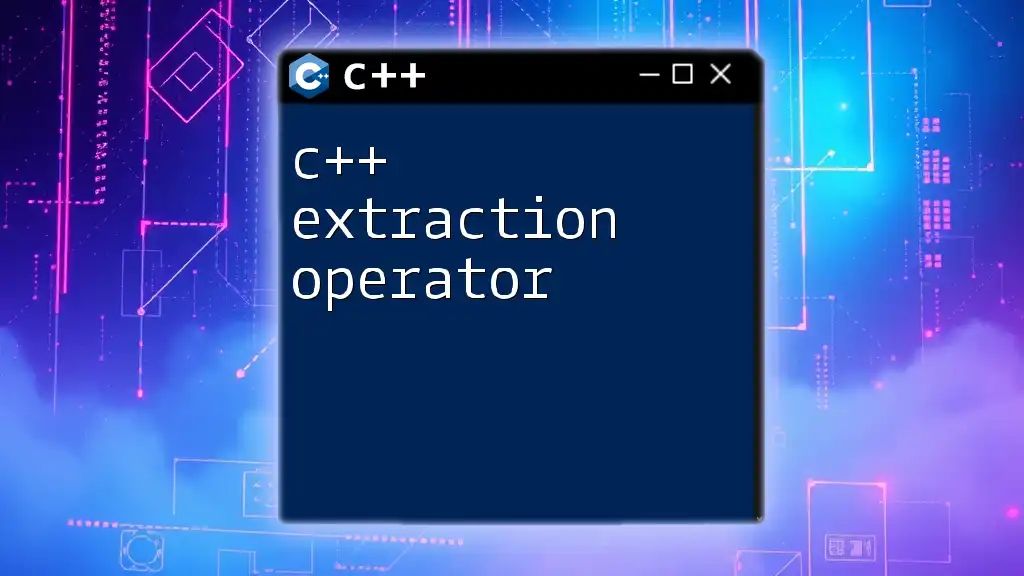
Conclusion
C++ application development frameworks provide powerful tools and capabilities for developers. From cross-platform applications to game development, utilizing the strengths of C++ can lead to efficient and scalable software solutions.
Next Steps
To continue your journey in C++ application development, explore available resources such as books and online courses. Start your projects and apply learned concepts to gain hands-on experience. The possibilities are endless, and with determination, you can create remarkable applications using a C++ application development framework.
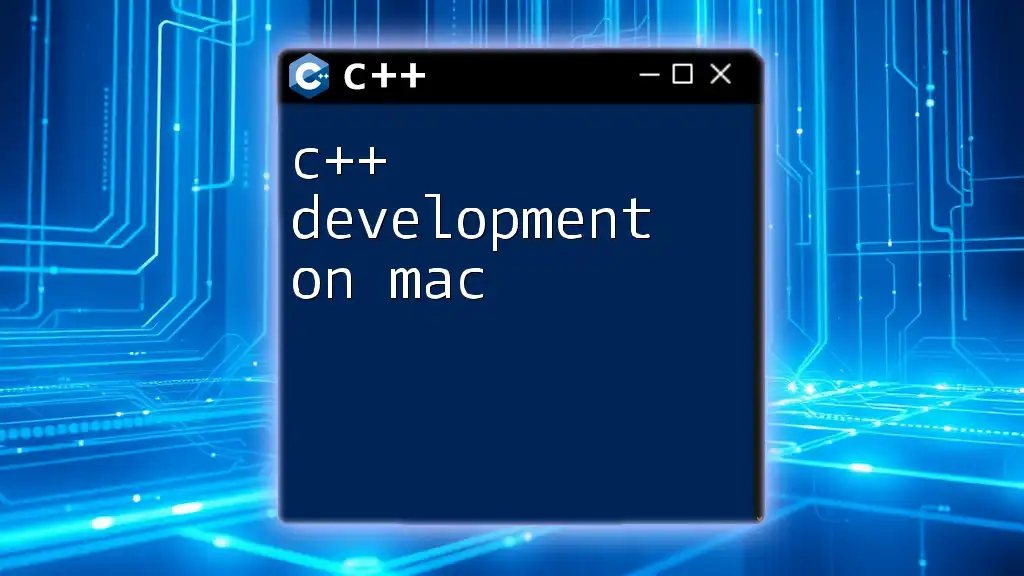
Additional Resources
Useful Links
- Official documentation for frameworks like Qt, CPPCMS, and others.
- Online communities and forums dedicated to C++ development.
Recommended Books
- The C++ Programming Language by Bjarne Stroustrup
- Effective C++ by Scott Meyers
By deepening your knowledge through practice and exploration, you’ll be well on your way to mastering C++ application development frameworks!

